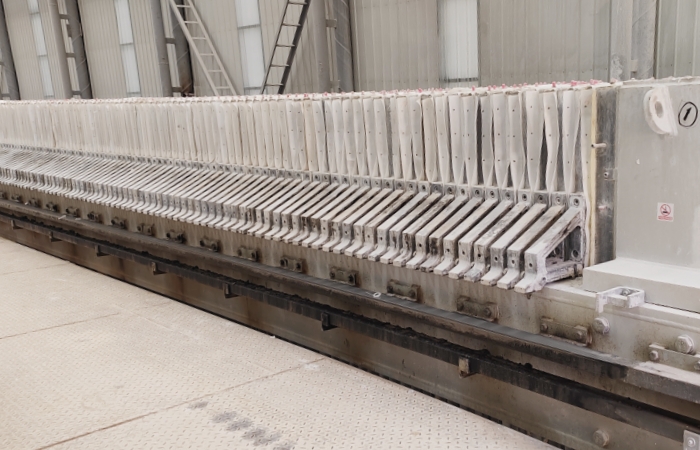In industrial production, the choice of filter press cloth directly affects filtration efficiency, equipment lifespan, and production costs. It is therefore crucial to have a comprehensive grasp of the classification and characteristics of filter press cloth in order to optimize production processes and enhance efficiency. Filter press cloth is categorized according to the material, with the main types of polypropylene (PP), polyester (PET), nylon (PA). Each material possesses distinctive characteristics, making them suitable for different industrial production environments.

Polypropylene Filter Cloth (PP):
Polypropylene filter cloth is known for its good abrasion resistance, chemical corrosion resistance, as well as acid and alkali resistance. It is widely used in the chemical, pharmaceutical, and food processing industries. Especially in the treatment of slurry containing corrosive substances, polypropylene filter cloths show good stability and durability.
Polyester Filter Cloth (PET):
Polyester filter cloth is the preferred material due to its resistance to acid, weak alkali, abrasion, corrosion and good electrical conductivity. It is a widely used in a wide range of applications in the pharmaceutical, mining, chemical and metallurgical industries. It is particularly suited to the treatment of corrosive substances or high-temperature filtration processes, where it demonstrates excellent performance.
Polyamide(Nylon) Filter Cloth (PA):
Polyamide filter cloth is known for its high strength, high wear resistance, and good elasticity. Nylon fibre is the most abrasion-resistant of all fibers, and is resistant to strong alkalis and weak acids, but is not resistant to light and may discolour and become brittle. PA filter cloth is widely used in the rubber, ceramic, pharmaceutical, food, and metallurgical industries, particularly in filtration situations requiring high strength and high wear resistance.
In conclusion, when selecting filter press cloth, it is essential to consider a range of factors, including material, structure, filtration objects and requirements, as well as the performance characteristics of the filter cloth. It is only by selecting the appropriate filter cloth material and model that we can ensure an improvement in the filtration efficiency of the filter press.